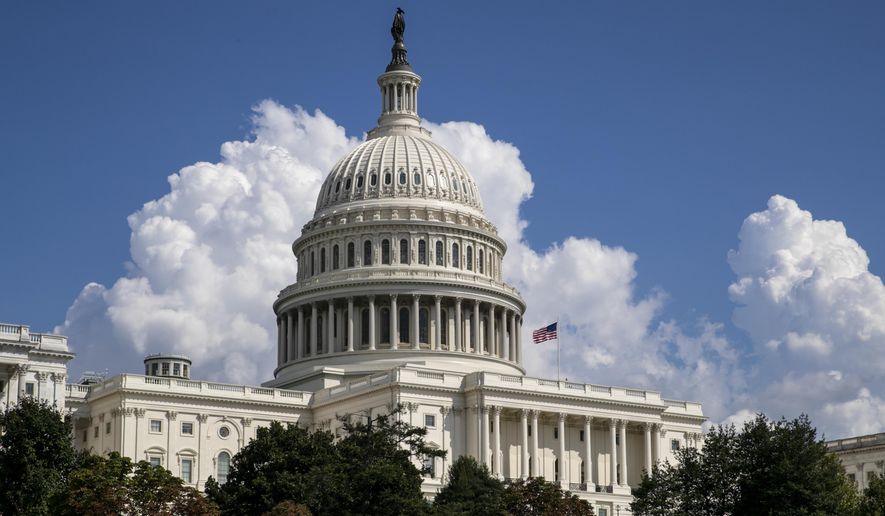Congress is set to blow through its deadline for crafting a federal budget this week, even as the government moves closer to breaching the debt ceiling.
Officially, Congress is required to pass legislation by April 15th annually outlining its spending and revenue priorities for the coming fiscal year. While the legislation serves as little more than an aspirational blueprint to guide congressional committees on spending, this year marks the 20th year in a row that lawmakers have ignored the deadline.
“Budgeting is a fundamental part of governing, and the fact that Congress has not taken this role seriously shows just how broken our budget process has become,” said Maya MacGuineas, president of the Committee for a Responsible Federal Budget. “We are already over halfway through the current fiscal year, and there’s been little progress on negotiating funding for 2024.”
Congress has passed all of its appropriations bills on time — the end of September — on only four occasions, the most recent being in 1997.
Generally, the White House proposes an initial budget every year after the president’s State of the Union address. The document serves as little more than a starting point for negotiations between the White House and lawmakers on Capitol Hill.
Those negotiations often stretch past the Sept. 30 government funding deadline, forcing lawmakers to pass stopgap funding bills to prevent the government from shutting down.
“The budget process is largely a game of brinkmanship,” said a senior Republican aide. “The president proposes his budget, but lawmakers ignore it until a government shutdown is looming. Everyone wants something in the budget and they think waiting until the last minute will present them with the best chance of getting it.”
Last year, Republicans pledged to change the system if they took control of the House in the midterms. Instead, now that they are in the majority, House Republicans appear no closer to presenting their own budget.
No less than three factions in the House Republicans conference are drafting their own budget proposals. Each is proposing different spending cuts, with there being little agreement apart from recouping the $90.5 billion in unspent COVID-19 relief.
The divisions are part of the reason that top Republicans on the House Budget and Appropriations committees have stalled in drafting their official spending program. GOP lawmakers had planned to unveil their proposal to coincide with the April 15 deadline.
Outside of GOP divisions over spending cuts, Republicans have been vexed by President Biden’s refusal to negotiate over raising the debt ceiling. GOP lawmakers have little hope of getting the White House and Democratic-controlled Senate to agree to slash federal spending apart from the debt-ceiling issue.
Rather, Republicans hoped they could pressure Mr. Biden and Democrats to accept the cuts in exchange for raising the cap on how much the federal government can borrow to meet expenses.
“Spending reforms are necessary; otherwise, we’ll be back in this same situation before we know it,” said Oklahoma Rep. Kevin Hern, who chairs the Republican Study Committee.
But Mr. Biden has refused to negotiate. The White House has said that both Republicans and Democrats have contributed to the more than $32 trillion national debt and both parties should come together to raise the debt limit.
“They’re putting our economy in jeopardy by threatening to refuse to pay America’s bills that took 200 years to accumulate,” Mr. Biden said during a recent swing through Minnesota. “Not this year, last year, [but] 200 years.”
Last month, Mr. Biden proposed a $6.8 trillion budget that would hike taxes by more than $5.5 trillion over the next decade. Republicans have said the proposal is a nonstarter and are urging the White House to get serious about negotiating.
“I have no interest in brinkmanship — only in doing what is best for the American people,” House Speaker Kevin McCarthy wrote in a letter last month asking Mr. Biden to start debt limit talks.
The partisan back and forth is taking place even as the U.S. Treasury has undertaken extraordinary measures to ensure the government continues to pay its debt. Treasury Secretary Janet Yellen has warned that those measures will only last until mid-July, by which time Congress must raise the debt limit or risk a default.
The Committee for a Responsible Federal Budget estimates that the U.S. government has already borrowed $1.1 trillion this fiscal year to make interest payments on the debt.
• Haris Alic can be reached at halic@washingtontimes.com.




Please read our comment policy before commenting.